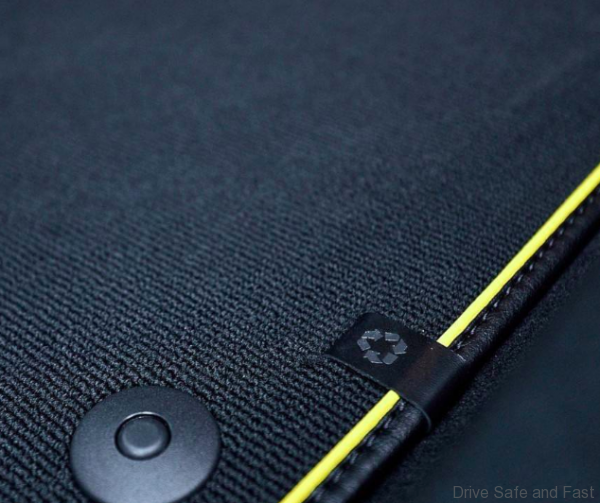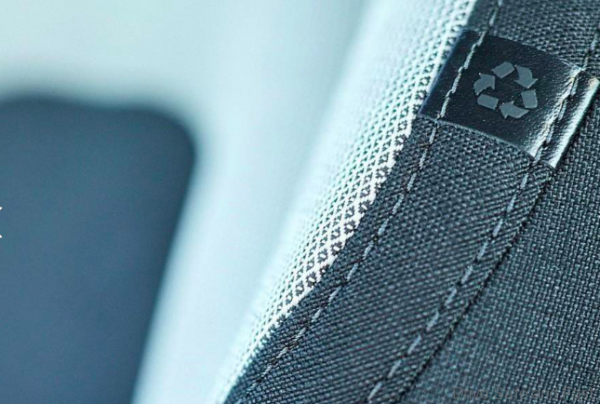Last year, Volvo presented a glimpse of a more sustainable future with the presentation of a brand new Volvo XC60 T8 plug-in hybrid, which had part of its interior made from plastics. Not NEW plastics, but recycled plastics in an effort to reduce they many growing plastic landfills.
First Showing
This XC60 made its debut during the Ocean Summit, at the Volvo Ocean Race Gothenburg Stopover. While this specially built version of the XC60 looked almost identical to the production model, more than 60kg of its plastic parts were replaced with parts made of recycled materials.

How Many
Some of the 170 recycled components include the tunnel console that runs down the center of the front seats, made from renewable fibers and plastics from discarded fishing nets and maritime ropes.
The seats are sewn from two different kinds of textiles, both of which are made from recycled plastic bottles. The vacuum reservoir under the bonnet – which helps to regulate the turbo engine pressure – is made of recycled fabrics from airbags. The plastic coating is taken from the fabric left over when airbags are cut out. It’s then broken down and reconstituted to make hard plastic.
The hood absorber that sits under the bonnet and helps to absorb sound is made from used Volvo car seats. The plastic foam inside the seats is taken, processed and formed into a sound absorber layer. The seats are made from recycled plastic bottles. Carpets and mats are made from fishing nets claimed from the sea. Parts of the luggage compartment are made from ketchup and shampoo bottles.

The Commitment
Now, just a week ago, Volvo Cars made a commitment that all new Volvos from 2025 and beyond will have 25% of plastics made from recycled materials. The initiative begins with an XC60 T8 hybrid SUV.

The Partner
So, who is helping Volvo Cars realize this dream? Manchester-based Axion Polymers has created a special 100 per cent recycled polymer blend made from end-of-life vehicles to help Volvo increase the content of recycled material in its cars.
Axion Polymers has supplied its 100% recycled polymer from end-of-life vehicles to help a leading automotive manufacturer demonstrate the use of sustainable components in new cars.

The Manchester-based recycler’s Axpoly PP polymer was blended 50/50 with a polypropylene recycled from packaging waste to achieve a specification required by vehicle designers for reuse in new vehicle components.
An initial sample of this plastic blend has been used successfully to mould both internal and external body parts for a new car in a collaborative demonstration project for Volvo Car Group involving more than 40 suppliers of vehicle components.
Axion claims its strong technical expertise and continual development of high-quality recycled polymer grades that can replace virgin plastics in new cars will support the automotive industry in its transition from a ‘Linear’ to a Circular Economy.

What Is Your Contribution?
Well, to start, you need to stop using single use plastics in your daily routine. Second, recycle whatever plastics you get in your daily routine where possible. Third and finally, buy a Volvo only!

